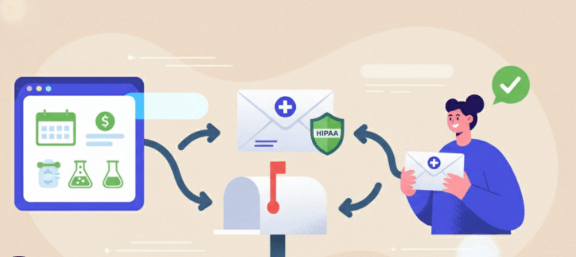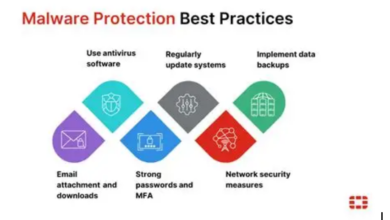The Essential Guide to HIPAA Compliant Direct Mail Services

In the healthcare industry, patient confidentiality is paramount, and strict regulations like HIPAA (Health Insurance Portability and Accountability Act) ensure that personal health information (PHI) is carefully protected. For organizations that want to communicate via mail while adhering to these regulations, HIPAA direct mail services provide a secure solution. This article explores what HIPAA direct mail entails, its importance, and how to choose the right direct mail service for your needs.
Understanding HIPAA Regulations
HIPAA was enacted in 1996 to protect sensitive patient information from being disclosed without the patient’s consent or knowledge. This federal law applies to healthcare providers, payers, and anyone else handling PHI. The key components of HIPAA include:
- Privacy Rule: Establishes standards for the protection of PHI.
- Security Rule: Outlines measures for safeguarding electronic PHI.
- Transaction and Code Set Rule: Ensures standardization in health-related transactions.
- Breach Notification Rule: Requires reporting breaches of unsecured PHI.
Adhering to these regulations is crucial for healthcare organizations to avoid penalties and maintain patient trust. Any communication that includes PHI must be managed accordingly, making HIPAA-compliant methods critical, especially when it comes to direct mail.
The Importance of HIPAA Direct Mail
Direct mail remains a powerful marketing tool for healthcare providers. Unlike email, which may have lower open rates due to spam filters and information overload, direct mail stands out and often gets a better response rate. However, traditional direct mail practices may not meet HIPAA requirements, emphasizing the need for specialized services.
Here are some key reasons why HIPAA direct mail is important:
- Patient Trust: Patients are more likely to engage with healthcare providers who demonstrate a commitment to their privacy and confidentiality.
- Legal Compliance: Failing to comply with HIPAA regulations can result in significant legal consequences, including fines and reputational damage.
- Effective Communication: Well-designed direct mail campaigns can communicate vital health information, appointment reminders, and wellness tips securely.
How HIPAA Compliant Direct Mail Works
HIPAA compliant direct mail services take extra precautions to ensure that any patient information included in physical mailings is handled appropriately. Here is a brief overview of the process:
- Data Collection: Organizations must ensure that they collect and manage patient data in compliance with HIPAA regulations.
- Data Encryption: Any PHI that is stored or transmitted is encrypted to protect it from unauthorized access.
- Secure Printing and Mailing: The physical mail itself is produced in a secure environment, ensuring that only authorized personnel have access to the data.
- Clean-Up Protocols: After the mailing is sent, all data should be securely deleted to prevent any potential breaches.
Choosing the Right Direct Mail Service
When it comes to selecting a direct mail service, healthcare organizations must prioritize those that emphasize HIPAA compliance. Here are a few steps to guide your selection process:
1. Assess Your Needs
Consider the type of communications you intend to send. Will they include sensitive information or just general marketing materials? Understanding your needs will help you select a service that is appropriate for your goals.
2. Verify HIPAA Compliance
Not all direct mail services guarantee HIPAA compliance. Ensure that the company you are considering can provide proof of their compliance practices. This may include documentation such as data handling procedures or business associate agreements (BAAs).
3. Review Their Security Measures
Look for services that have robust security measures in place—for example, facilities that use locked storage for sensitive data, secure data destruction methods, and encryption protocols. This will give you peace of mind that your patient information is safe.
4. Read Reviews and Testimonials
Customer feedback is incredibly valuable. Look for reviews or testimonials from other healthcare organizations that have used the service. This can help gauge the reliability and quality of their offerings.
5. Discuss Pricing and Services
Finally, get clear about the costs involved and what services are included. Some direct mail services might offer bundled options that can save you money while ensuring compliance.
Benefits of Using HIPAA Compliant Direct Mail Services
Investing in HIPAA compliant direct mail services can significantly enhance your organization’s outreach efforts while maintaining compliance. Here are key benefits to consider:
- Targeted Campaigns: You can reach specific patient segments with tailored messages that resonate with their health needs.
- Improved Patient Engagement: Engaging directly with patients via mail has been shown to improve response rates and foster stronger relationships.
- Documentation and Record Keeping: HIPAA compliant services often provide detailed reporting on campaigns, which assists in compliance audits.
Conclusion
With the growing reliance on physical mail to reach patients, it is essential to employ services that can handle PHI securely and comply with HIPAA regulations. Investing in HIPAA direct mail will not only help safeguard patient information but also enhance your organization’s ability to communicate effectively. As you make your choice, prioritize compliance and security to protect patients’ trust and your organization’s reputation.



